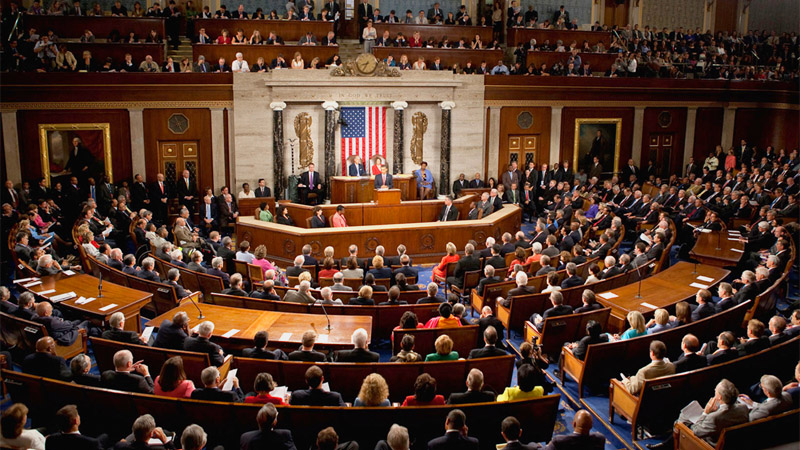Unrest is brewing in republics worldwide. As nations are ravaged by socioeconomic crises, the people no longer feel served by their elected officials. Is this a temporary hiccup, or an inevitable result of traditional representative democracy?
Across the world, people left disenfranchised in the face of their leaders’ decisions have begun to lash out. It’s happening peacefully in Spain, with the nonviolent protests of the indignados. It’s happening violently and chaotically in Britain, with riots, looting, and arson. Greece is somewhere in between, fluctuating between peaceful protests and police-provoked violence. All are results of an elected leadership that seems not to care about the problems of its people.
Yet in the United States — one of the most disenfranchised and democratically disillusioned nations in the world — there has been relatively little response. In the US, the problem is so bad that it has gone past making the people angry and frustrated, and made them hopeless and nihilistic. Two superficially different parties control everything, and are propped up by bribes and manufactured consent from monolithic corporations. To many, it seems pointless to revolt, let alone vote.
But corporatocracy in the US and out-of-touch reactions to social inequality in Europe are just symptoms of the real problem. How did it get to this point? Why don’t the people stop things like this before they happen?
Disconnection.
In a representative democracy, citizens are fundamentally disconnected from the decision-making process. Their powers of self-determination end once they have pointed at somebody and said, “lead us.” Until the next election, their opinions no longer matter. The process of making, enforcing, and interpreting laws is left entirely up to the rulers.
Theoretically, a leader has an incentive to do a good job and actually represent the interests of the people; if they don’t, they lose the next election. In practice, the disconnect between politician and citizen leads to apathy.
The bourgeois argument in favor of representative democracy asserts that the “unwashed masses” lack the knowledge and intelligence to properly govern, and therefore must allow only the most educated to make decisions. This ends up being a self-fulfilling prophecy; representatives, being actively involved with the process of governing, have more information from which to work with than their constituents.
In reality, the constituents are more than capable of understanding all of this government-y stuff, if it were only explained to them and opened up to them. This often doesn’t happen. The people aren’t kept in the loop, and don’t feel that their voices are heard. They have no way of knowing whether or not their leaders’ decisions are truly for the best. With all of the information technology we have at our disposal today, it’s absurd that there are so few avenues to make a real connection with elected leaders.
But simply slapping the Intertubes on top of representative democracy isn’t enough. Representatives have had plenty of easy avenues of communication open to them for decades. Letter-writing, phone calls, personal meetings; all of these allow representatives to open a dialogue with their constituents. Yet the disconnection remains. No matter how much citizens can communicate with their leaders, they still must put their full faith and trust in an authority above themselves to make decisions. Outside of an election, citizens have no real power, and they know it.
This lack of power breeds apathy and ignorance. Until it breeds violence.
The process of making, enforcing, and interpreting laws isn’t a part of most people’s lives. They don’t see it, they don’t experience it, and therefore they don’t feel invested in it. And they don’t notice when it’s about to go wrong, until it’s too late. How long before a well-run, functioning representative democracy stumbles and falls prey to the disenfranchisement of its citizens? Corruption can be fixed, but how long until it just comes back again?
As this cycle continues, people are hurt, environments are destroyed, wealth is hoarded, futures are ruined, and it becomes harder and harder to fight each time. How much longer can this go on?
This cycle can be broken. The dichotomy between “the government” and “the people” needs to disappear. No more pointing at people, telling them to lead, and sitting back while they have the fate of society in their hands. Governments need to be built around citizen participation and inclusion. Informal representatives might emerge organically on a case-by-case basis, motivated not by a cushy job but by a desire to help their fellow citizens achieve goals. Everyone would have a hand in their future.
It would be a government by the swarm.







[…] Continue reading at Falkvinge on Infopolicy /* […]
Citizen can participate through representative direct democracy. We members of Aktiv Demokrati want this to happen and we are developing a free open source voting system.
The thing with ideas like this is that they are too often drawn from idealism and an activist’s frame of mind. One assumes that the world is how one thinks it is, and that everyone is, more or less, like oneself.
While I do believe that everyone needs to have the power to make their voice heard and participate in their society in a directly democratic fashion, I think this kind of idea will eventually fall down on those assumptions and that idealism, as not everyone has an interest in being politically active, and certainly not all would be active in all areas of society, even if they had a direct influence.
An alternative that would be better, perhaps, would be a form of volontary representation – letting those who wish to participate directly do so, while at the same time giving those who don’t the opportunity to choose a representative – someone who could place their vote and speak for them in questions that they themselves don’t care particularly about. This could be anyone of their choosing – a political party or simply a friend that one trusts.
Regardless of that, however, I do agree. The power of the political class must be broken, and the people must take the lead if we’re ever to have anything close to real democracy and real liberty.
As usual, Zaquary picks an interesting topic, makes a fairly decent analysis with only a few errors, and then goes off making the most preposterous conclusions.
Government by the mob is a really, really bad idea. It has happened many times in history, with the French revolution as the most shining example. What you want is government by an enlightened elite. This has also happened many times in history, though the periods when the elite actually is enlightened tend to be fairly short.
Unfortunately we seem to be stuck with government by an unenlightened elite most of the time.
There are various ways to mitigate this problem. Make sure that government is weak – based on coalitions and preferably in minority. Make sure that governments switch to the opposition at frequent intervals. Never allow “winner takes all” rules for representation.
This avoids the US situation, with a 2 party fascist state and the UK situation with strong governments that can ignore the voice of the people for long periods of time.
It is not ideal, but swarm democracy would be a really ugly thing. There are charismatic people who can move the swarm in ways that are not for the general good. The people who float to the top of the swarm can be labeled sociopaths or scum.
“Unfortunately we seem to be stuck with government by an unenlightened elite most of the time.”
That would be literal truth, unfortunately. I think the only way we’ll ever get the representation we actually need is in an unrealistic utopia.
Barring that, keeping a government weak and the government postings unenviable, subject to draconian oversight, and ensuring that a ministry post is the equivalent of the old “beggar’s chair” on display in museums of medieval justice would be the way to go.
The way the system is set up right now it simply promotes the unenlightened elite over the enlightened one.
Of course, if I had my way the only candidates to be even considered to administrate a country should be people with a proven record of administrating complex systems and hopeless user demands for years.
I.e. let’s recruit all future cabinet minister candidates from the alt.recovery.sysadmin adress list or from infrastructure construction engineers. Any decent plumber or electrician would be far more fit to determine the needs of a nation than the crop we currently have in office in Sweden.
Which isn’t saying much since (with the sole and fortunate exception of the minister of finance) the current crop of cabinet posts could be replaced with turnips without any negative effects.
Hmmm . . .
This Hallén guy is the perfect example of the problem ZAG is talking about.
Notice his choice of words: “mob” not “citizens”
“swarm democracy” not “Swiss model direct democracy”
Spoken like a true aristocrat, Mr. Hallén! Your contempt for your “inferiors” is showing.
I agree with the description of the problem, and agree with the fact it is very important to solve this corruption problem, but I’m not too sure about the solution you’re proposing.
Weak, divided governments might help with corruption, but I’m worried they wouldn’t be able to carry through with visionary, long term projects. How are you supposed to carry through with a several decades long, costly project if your political opponent has the will and power to retaliate against you next year by sinking it whenever you didn’t comply with his own wishes (which may be completely incompatible with your own beliefs or goals) this year ? You need stability in order to plan for the long term, and historically, strong governments have achieved that more reliably than weaker ones.
(It goes without saying that I’m convinced that long-term visionary projects are necessary for the advancement of humankind. And it feels like really visionary which have been planned for and put together, have been on the decline too for the last 50 years or so.)
How could we keep democracy fit and our political system non-corrupted aside from weakening and dividing its powers ?
Actually, the French Revolution is a shining example of a small percentage of a population seizing power and acting in decidedly undemocratic ways. Not unlike Germany.
DEMOCRACY DOES NOT EQUATE TO MOB RULE.
Mobs, for the most part, are made up of a vocal minority which resort to violence. DEMOCRACY IS NOT MOB RULE. DEMOCRACY IS RULE BY MAJORITY. Get it straight-
If you’d like to go to an Absolute Authoritarian state, please go there. Try Jordan. Or maybe Russia. But don’t try to drag us with you–
Yeah, this is kinda belated. I know. Necro and all that.
This has to be said.
DEMOCRACY IS NOT MOB RULE.
Thank you.
/soapbox
Most of the times, violence as a way of ordering society is wrong. ( I am (in general) against capital punishment). But in case of the French Revolution, the mob was right: they were starving while the aristocracy was living in luxury and not giving a damn for the populace.
So, once in maybe 200 years violence must be used (is the only effective means left) to root out the rot at the top. I would fully support the public beheading of Barosso, van Rompuy and many bank ceo’s. Just to scare the shit out of the next generation of power holders. And make sure they do not waste and gamble the money of the average man in the street. Other means Just Don’t Work(tm).
“Corruption can be fixed, but how long until it just comes back again?”
One nanosecond? Two?
One important thing is, in my opinion, looking at the roots of a word.
Democracy comes from “dêmos” (the people) and “krátos” (the power), which literally means “the power to the people”.
I think the representative regime is a form of “light” oligarchy.
The Constitution of Switzerland is a good mix of direct democracy and semi-direct democracy. Every important decisions has to be approved by a mandatory referendum.
The ancient Greece democracy was probably the less worst system, but it relied on the fact that every citizen who had a voting power was also a well trained soldier. All the politicians where trained for two years as well on politics as on militia. Anyone threatening the democracy would face the Ecclesia (the popular assembly).
Maybe starting, for example, with half the Representatives elected and half the Representatives drawn at random within the electoral lists would create a sufficient counter-power.
In my opinion, drawing at random frequently and limiting the extent of power is the best way to avoid professionalization of politics, power abuses, the tradition of electing the son of the son of the grandson of XYZ and it would also prevent corruption as the mandate is temporary and revocable at any time…
[…] Is Representative Democracy Sustainable? […]
I have the fortune to live in Swizterland, as far as I know the only country implementing direct democracy. The “cult of personality” seen in many representative democracies, and that feeling of not having any power in political decisions is nowhere to be seen.
This democracy is so advanced to the point that no one cares about who’s the President at a given moment. Indeed the President is simply an administrative position without particular god-like properties. Politicians here don’t have much power.
Currently the federal council is composed of four women and three men. Representatives come from six different cantons, of which two are French speaking ant the rest are Swiss German speaking. Micheline Calmy-Rey, a woman from Geneva, is currently the President of the council. She isn’t the Head of State of the Swiss Confederation.
[…] no longer wanted to be mere taxpayers and voters, but citizens. An acknowledgement that it’s not enough to just check off a name on a ballot and hope that everything turns out okay. And based on this one idea — that it should be people, not money and corruption, in control of […]
[…] falkvinge.net via pirate.gr Rate this: Share this:StumbleUponDiggRedditPrintEmailFacebookTwitterLike this:LikeBe the first to like this post. Posted by RYaN in ΕΠΙΚΑΙΡΟΤΗΤΑ […]
Fantastic blog.Really thank you! Great. ventolin
Thanks for finally writing about >Is Representative Democracy Sustainable?
– Falkvinge on Infopolicy <Loved it!